Share
Antisemitism is the world’s oldest hatred. And antisemitism, if you think about it, doesn’t make sense in any normal sense, because normally hatred is for a reason. But antisemitism is completely irrational.
So in the 19th century, Jews were hated because they were communist and because they were capitalist. They were hated because they were rich and because they were poor. They were hated because they kept to themselves, and they were hated because they infiltrated everything and got everywhere. They were hated because on the one hand, Voltaire saw them as a people rooted in a superstitious, ancient faith. They were hated because the communists thought they were rootless cosmopolitans who believed nothing.
So antisemitism at every level is a contradiction in terms. How then do we understand it? Antisemitism is a virus. Now the body has this extraordinarily sophisticated thing called the immune system, which protects it against viruses. So how do viruses infiltrate the body’s immune system? The answer is that viruses mutate, and that’s what antisemitism has done over time. It mutates.
So here is a brief history of antisemitism. In the ancient world, the Greeks and some of the Roman writers were critical of Jews, and often people see that as antisemitism. Actually it wasn’t, because the Greeks thought that everyone who wasn’t a Greek was above barbarian. So as they say in the Mafia just before they shoot you, nothing personal, strictly business. So Greek and Hellenistic anti-Jewish writing, so not really antisemitic. They’re just anti-foreigner. They are xenophobia. They’re not judeophobia, hatred of the people not like us.
So when does antisemitism really begin? The short answer is sadly it begins with Christianity. For the first time, Christians hated Jews specifically, not just in general. Why? Because they, in so many words, rejected their own Messiah. From that moment, it became personal, focused, targeted, and that was the first, the birth if you like of what I would call religious anti-Judaism. That is mark one.
The next mutation occurs somewhere around 1096, the First Crusade, when Jews were massacred across Europe by the crusaders on the way to liberate the Holy Land. That was not just hatred of Jews because they weren’t Christians. That was what I call demonic antisemitism. All of a sudden Jews were not just the people who rejected Christianity, but they were guilty of desecrating the host, poisoning the wells, spreading the plague, the blood liable. All of a sudden Christianity began to see Jews as a malevolent force of evil in the world. Satan, the infidel, the antichrist, that was antisemitism mark two.
Antisemitism mark three we can date precisely, 1879. The word antisemitism was coined in that year by a German journalist called Wilhelm Marr, and of course, that was different from the antisemitism of the past because this was not religious. It was racial. And the second racial antisemitism was born, the whole history became much more tragic because you can change your religion, but you can’t change your race. Christians might work for the conversion of Jews, but racial antisemites could only work for the, God forbid, extermination of Jews.
We are living through the fourth mutation. The fourth mutation is what I would call religious anti-Zionism. All of a sudden Jews are attacked not as individuals, but as a nation in its own land. And we suddenly become the one people on earth who are not entitled to have a land, a country, a society of their own. That of course becomes antisemitism, when all Jews are presumed to be Zionists and therefore guilty of the primal sin of wanting a country of their own. So that is antisemitism mark four, and that is where we’re at the moment.
More JInsider Videos
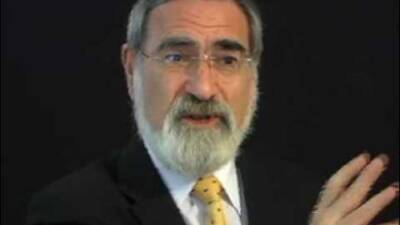
Rabbi Sacks on the Jewish Narrative
JInsider (March 2010)
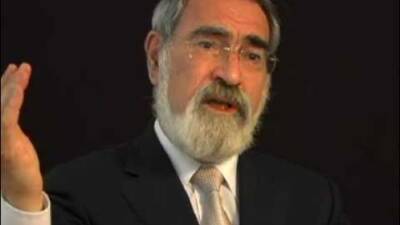
Rabbi Sacks on Future Tense Take Aways: Part 1
JInsider (March 2010)
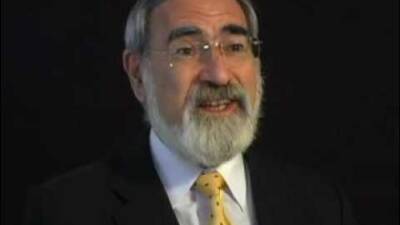
Rabbi Sacks on Future Tense Take Aways: 2
JInsider (March 2010)
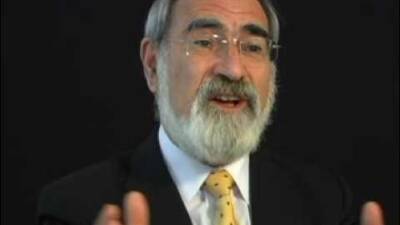
Rabbi Sacks on the Universal Jewish Story
JInsider (March 2010)
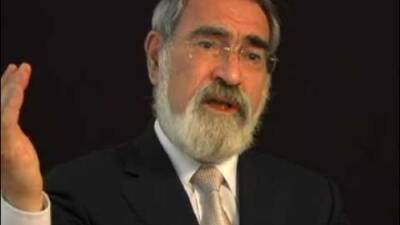
Rabbi Sacks on Eco-Judaism Roots
JInsider (March 2010)
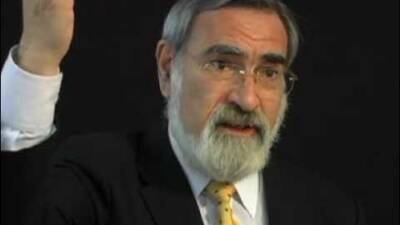
Rabbi Sacks on Peoplehood
JInsider (March 2010)

Rabbi Sacks on an Engaged Judaism
JInsider (March 2010)

Rabbi Sacks on Charity Priorities
JInsider (March 2010)

Rabbi Sacks on a Responsible Life
JInsider (March 2010)

Rabbi Sacks on Reconciliation
JInsider (March 2010)
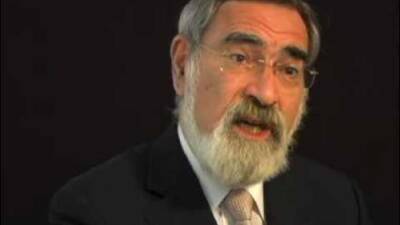
Rabbi Sacks on Community Conflict
JInsider (March 2010)
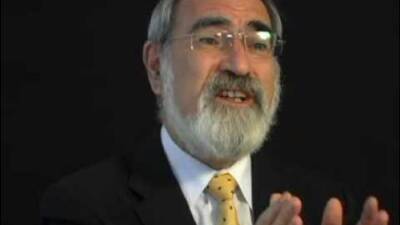
Rabbi Sacks on Particularism vs Universalism
JInsider (March 2010)

Rabbi Sacks on a Culture of Hope
JInsider (March 2010)
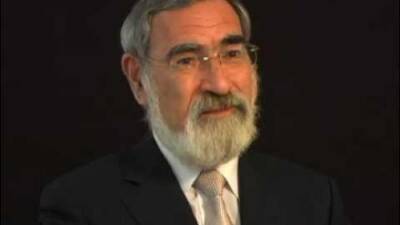
Rabbi Sacks on his Personal Hatikvah
JInsider (March 2010)
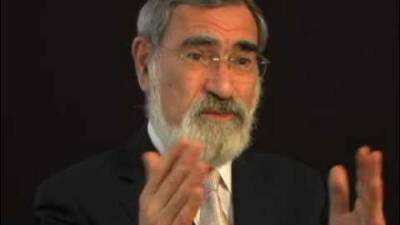
Rabbi Sacks on Israel and Jewish Society
JInsider (March 2010)
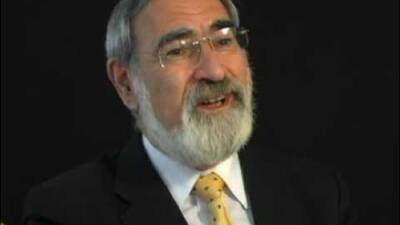
Rabbi Sacks on Torah in Today's World
JInsider (March 2010)
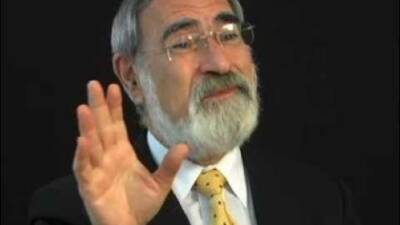
Rabbi Sacks on Prayer
JInsider (March 2010)
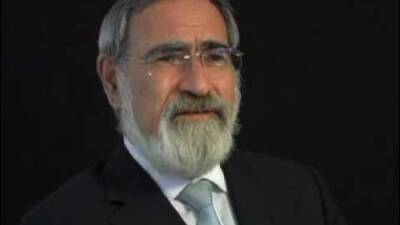
Rabbi Sacks on Indifference
JInsider (March 2010)
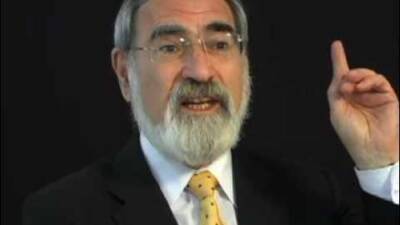
Rabbi Sacks on the Jewish Role in the World
JInsider (March 2010)

Rabbi Sacks on Torah and the Real World
JInsider (March 2010)
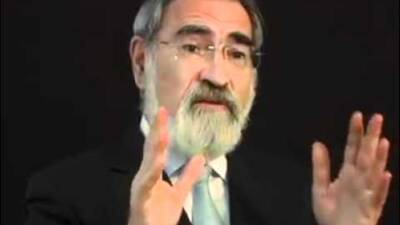
Rabbi Sacks on Free Market and Judaism
JInsider (March 2010)
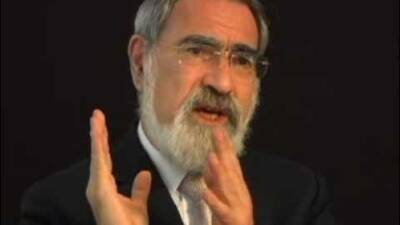
Rabbi Sacks on Antisemitism
JInsider (March 2010)
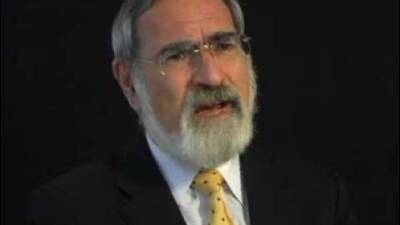
Rabbi Sacks on Future Tense
JInsider (March 2010)
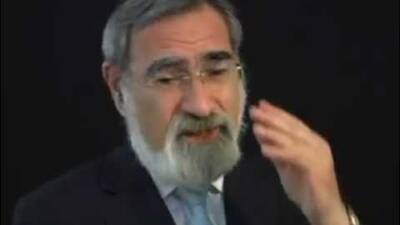
Rabbi Sacks on Love as Deed
JInsider (March 2010)
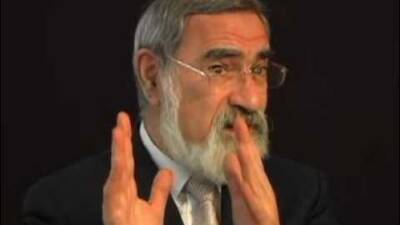
Rabbi Sacks on Combatting Antisemitism
JInsider (March 2010)

Rabbi Sacks on Material Loss
JInsider (March 2010)

Rabbi Sacks on the Antidote to Materialism
JInsider (March 2010)
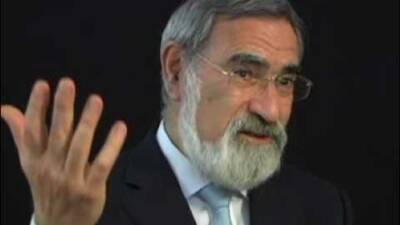
Rabbi Sacks on Parenting
JInsider (March 2010)

Rabbi Sacks on a Tzedakah Tale
JInsider (March 2010)
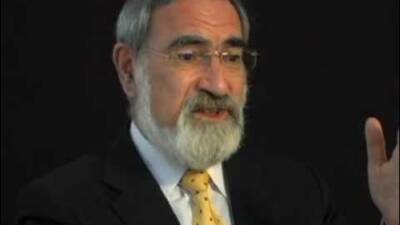
Rabbi Sacks on a Family Story
JInsider (March 2010)

On the Internet and Judaism
JInsider (March 2010)
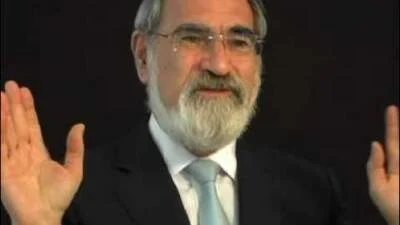
Rabbi Sacks on Plato's Ghost
JInsider (March 2010)

Rabbi Sacks on Optimism vs. Hope
JInsider (March 2010)

Rabbi Sacks on Victim Mentality
JInsider (March 2010)
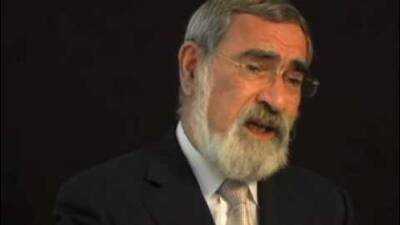
Rabbi Sacks on Jerusalem
JInsider (March 2010)

Rabbi Sacks on Advice for our Times
JInsider (March 2010)

Rabbi Sacks on Fundamentalism
JInsider (March 2010)

Rabbi Sacks on Time
JInsider (March 2010)
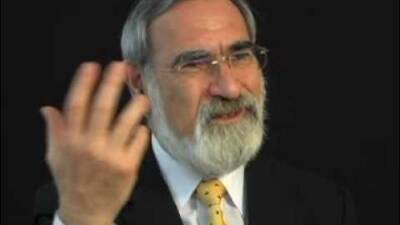
Rabbi Sacks on the Chosen People
JInsider (March 2010)
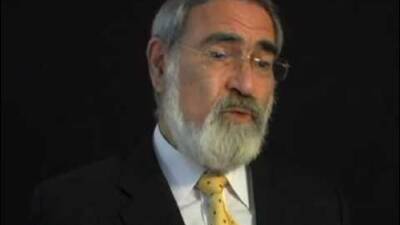
Rabbi Sacks on 21st Century Israel
JInsider (March 2010)
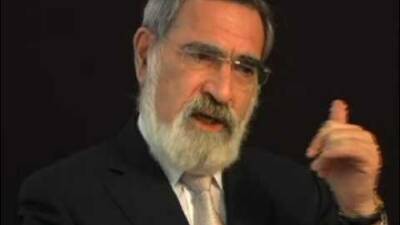
Rabbi Sacks on the Origins of Antisemitism
JInsider (March 2010)
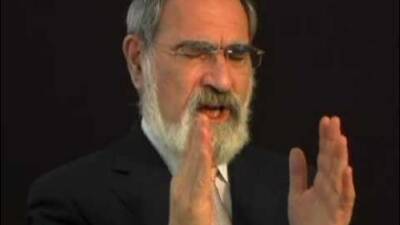
Rabbi Sacks on Understanding Jewish Exile
JInsider (March 2010)

Rabbi Sacks on Anger
JInsider (March 2010)
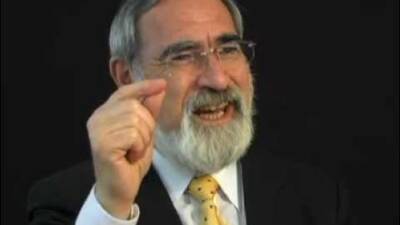
Rabbi Sacks on Interfaith Relations
JInsider (March 2010)
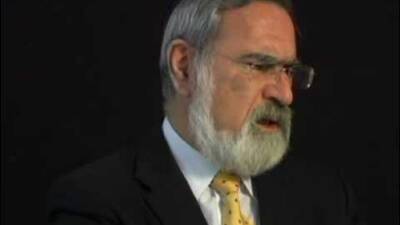
Rabbi Sacks on Coincidence and Providence
JInsider (March 2010)

Rabbi Sacks on Free Will
JInsider (March 2010)
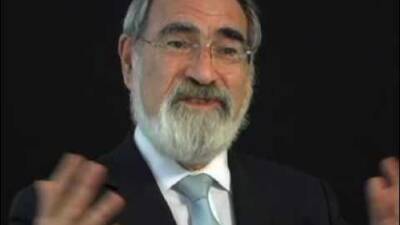
Rabbi Sacks on Family and Marriage
JInsider (March 2010)

Rabbi Sacks on Tzedakah Defined
JInsider (March 2010)
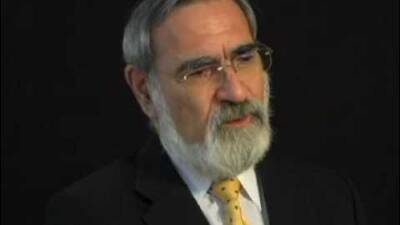
Rabbi Sacks on Daily Life
JInsider (March 2010)
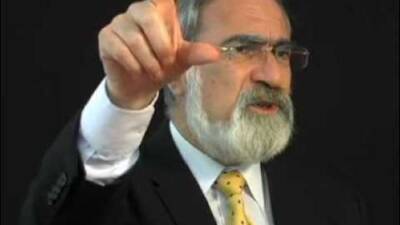
Rabbi Sacks on Being Jewish
JInsider (March 2010)

Rabbi Sacks on his Personal Rebbe, Rabbi Nachum Rabinovitch
JInsider (March 2010)
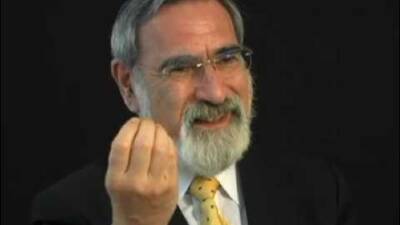
Rabbi Sacks on Connecting to God
JInsider (March 2010)

Rabbi Sacks on God and Evil
JInsider (March 2010)

Rabbi Sacks on Dialogue with Atheists
JInsider (March 2010)

Rabbi Sacks on Doubt
Jinsider (March 2010)
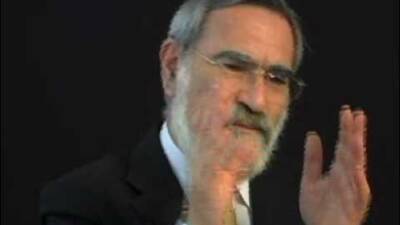
On Tikkun Olam
JInsider (March 2010)

Rabbi Sacks on a Response to Atheism
JInsider (March 2010)
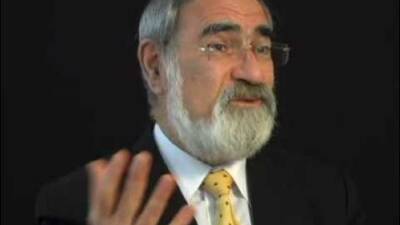
Rabbi Sacks on Finding Purpose
JInsider (March 2010)

Rabbi Sacks on a Responsible Life - Example
JInsider (March 2010)
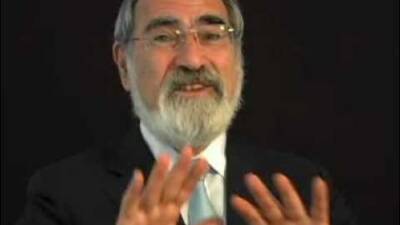
Rabbi Sacks on the Dignity of Difference - Part 2
JInsider (March 2010)
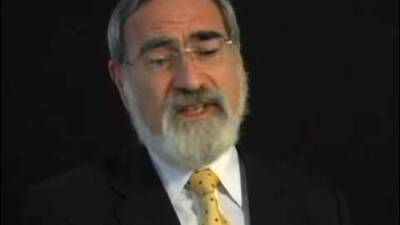
Rabbi Sacks on the Dignity of Difference - Part 1
JInsider (March 2010)
